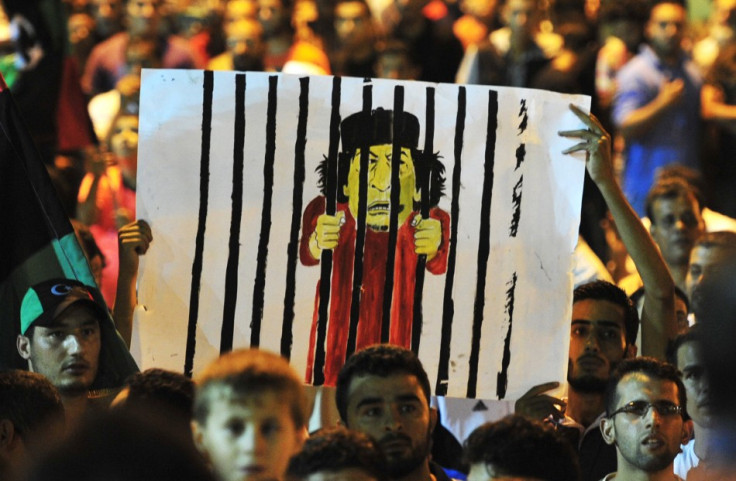Libya News: Gaddafi Hiding Near Algerian Border and Ready for Martyrdom, What’s Next?

While officials from the National Transitional Council (NTC) have now said that fugitive former leader Moammar Gaddafi could be hiding in the western town of Ghadamis near the Algerian border, the Colonel has turned to jihadist rhetoric calling his supporters to sacrifice themselves.
According to Libyan authorities, Gaddafi could apparently be under protection of ethnic Tuaregs, the former leader once supported a Tuareg rebellion in northern Niger, and hundreds of former Tuareg rebels reportedly headed towards Tripoli during the conflict to fight on the side of the Colonel.
His links with the Tuaregs were never a secret as in 2005, he granted an unlimited residency permit to all Tuaregs from Mali and Niger on Libyan territory and, in 2006, he called on all the tribes of the Sahara region, including Tuareg tribes, to form a common entity to oppose terrorism and drug trafficking.
It is however unsure how reliable the information is as NTC officials had previously maintained he was hiding in Sirte, then Bani Walid or even in the south of Libya.
Meanwhile, continuing his provocative anti-NTC and NATO campaign Gaddafi, who has managed to successfully stay in hiding since the NTC forces sized Tripoli insisted Tuesday he is still fighting along his supporters inside Libya.
"I am with you on the ground, though they say Gaddafi is in Venezuela or Niger," he said in a speech aired on the Bani Walid radio station, and posted by on pro-Gaddafi online groups.
"Resistance and martyrdom are for heroes and we are waiting for martyrdom... do not be sad, do not become weak because victory needs patience," he said.
Despite taking control of Tripoli, the NTC forces have struggled to impose their authority on Bani Walid, south-east of the capital Tripoli, and Sirte, Gaddafi's birthplace and infighting in the two Gaddafi strongholds has been on-going for around two weeks.
According to Colonel Roland Lavoie, a spokesman for NATO's mission in Libya the consistent resistance against the NTC in Sirte and Bani Walid showed that remaining Gaddafi forces refuse to recognize their defeat.
They were also reports they are now strategically hiding in urban areas and using humans as shields and the Alliance says about 200,000 civilians, mainly in Sirte and Bani Walid, are still threatened by pro-Gaddafi forces.
Proving that the international community is still divided over how to handle Gaddafi loyalists and members of his former government, Tuesday, a Tunisian appeals court overturned an illegal entry conviction against former Libyan Prime Minister Baghdadi Mahmudi, dismissing previous charges which saw the former Gaddafi minister sentenced to six months in prison on the illegal entry charges.
So despites months of fighting Libya is still divided into pro and anti-NTC forces and despite being on the run for weeks Gaddafi has still managed to escape NATO's radar. As the conflict is on-going and with the deadline of its mission in Libya still approaching it seems the Alliance is also stepping up its anti-Gaddafi rhetoric, saying civilians are mainly threatened by pro-Gaddafi forces.
Gaddafi loyalists seem indeed determined to fight in the name of their leader, if all the reports are correct. What remains mysterious however is how and why they still continue to fight. Surely with Gaddafi and his close circle on the run, it remains to be seen how his forces can stay armed, fed and willing to fight while their 'leader' has clearly been ousted from the command of the country.
People leaving Sirte and Bani Walid have also said they were too scared to become caught up in the conflict and end up being wounded as for each assault to 'liberate' Gaddafi strongholds, civilians risk ending up also paying the price.
Meanwhile the Colonel continues to pretend he is actually fighting with his supporters, when no one knows where he is and calls for martyrdom when he has been in hiding for weeks on end, making sure he does stay alive.
With a new transitional government struggling to take a grip on the country, reports that appear more and more unilateral and a former but dangerously delusional leader on the run, it is difficult to remain positive when thinking about what's next for Libya.
© Copyright IBTimes 2025. All rights reserved.




















